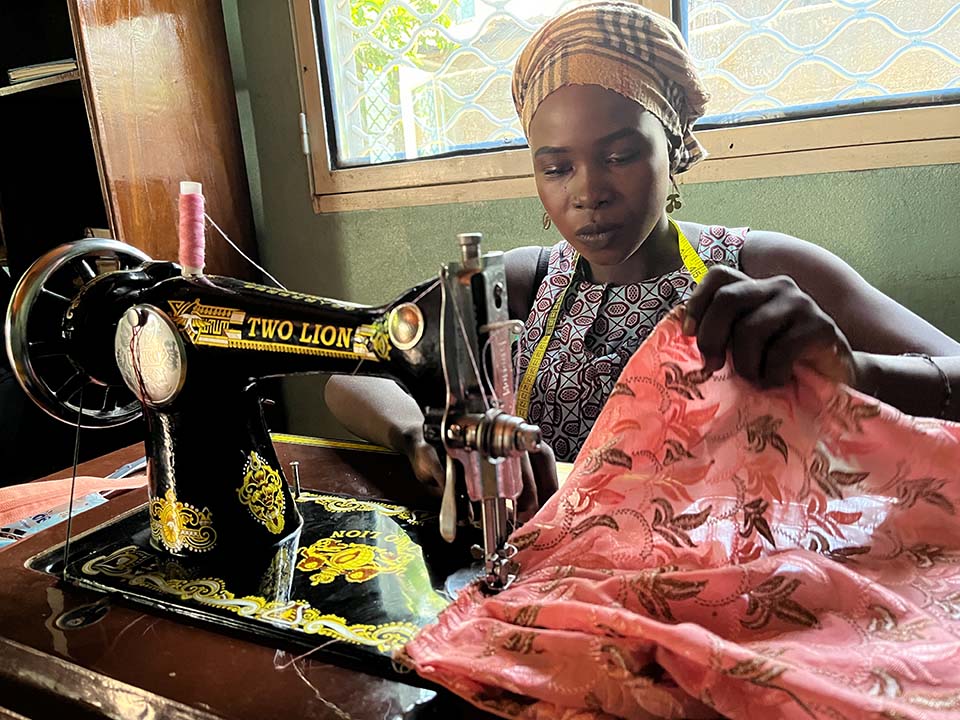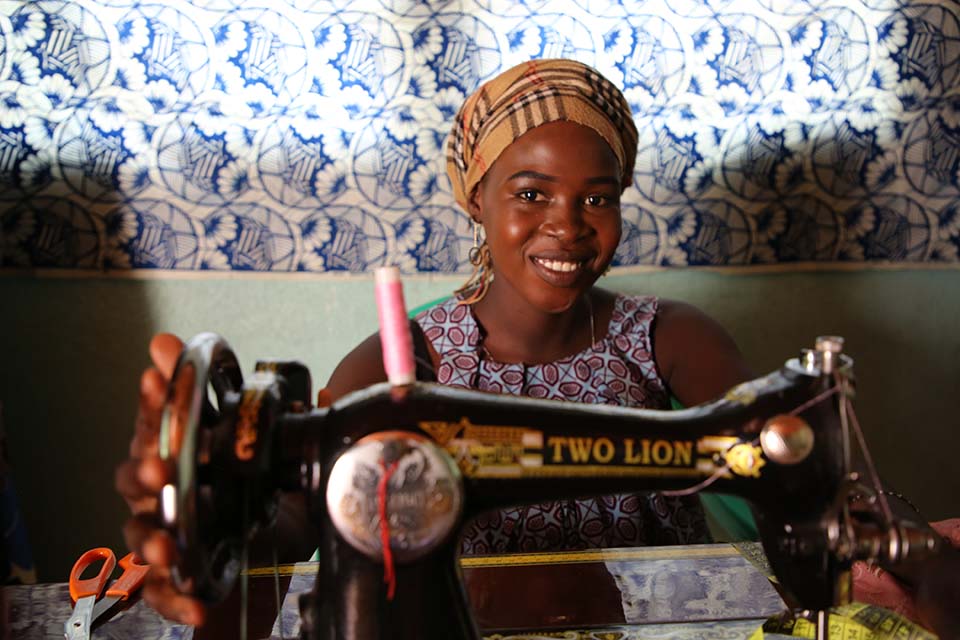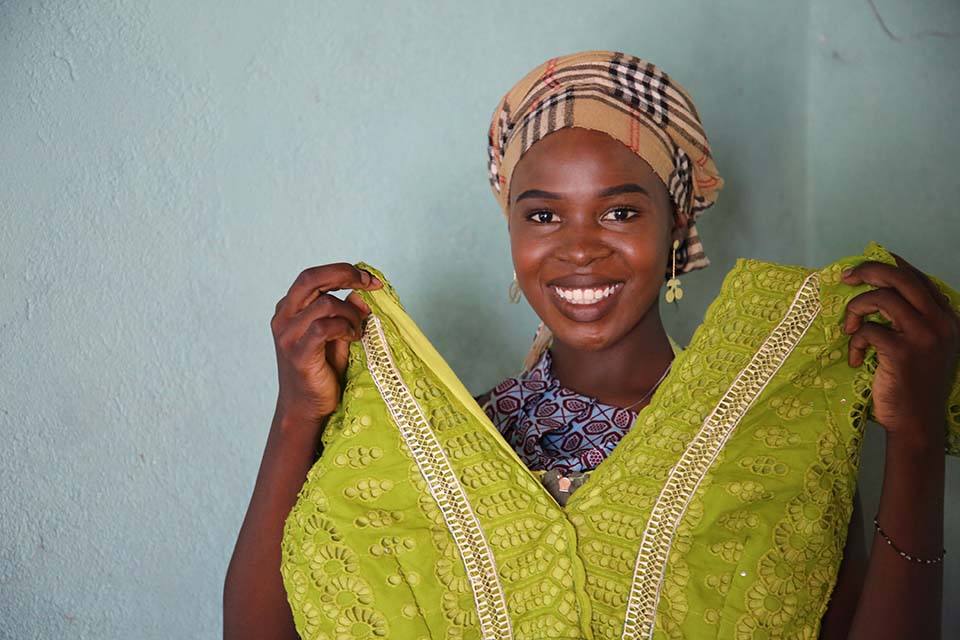

Helping Women with HIV Pursue Their Dreams in Cameroon
Up, down. Up, down. The sewing machine of 20-year-old LaFleur whirs quietly in her home in Cameroon, as she repeatedly rocks the foot pedal back and forth to provide power to the machine. She delicately guides the fabric under the needle, putting the finishing touches onto a one-of-a-kind dress she has styled for a client.
LaFleur has always dreamed of becoming not only a seamstress but a famous fashion designer.

LaFleur behind her sewing machine at her home in Cameroon.
Photo by Jennifer Lazuta/CRS
Then, in 2017, she got sick. Tests revealed she was positive for HIV. Too ill to attend class, LaFleur was forced to drop out of school. At just 15 years old, her outlook on life remained positive, but she no longer believed that she could ever have a career without a diploma.
“When they told me I tested positive for HIV, surprisingly I wasn’t devastated,” LaFleur says. “I said ‘this isn’t the end of the world for me. I’m not the first to have HIV and I won’t be the last.’ I was not going to let this disease bring me down. I am more than my test results.”
But, like many teenagers, LaFleur struggled to take her medications. She was constantly sick, and with no appetite, lost weight. She was ashamed to let her friends see her, and increasingly withdrew from her social circle. She gave up on her dream of becoming a designer.

LaFleur behind a sewing machine she used to start her business.
Photo by Jennifer Lazuta/CRS
Then, she enrolled in the KIDSS project, which works with the government, communities, families, and health providers to improve care and support services for orphans and vulnerable children affected by HIV in Cameroon. LaFleur was assigned a caseworker, who helped her develop a care plan and offered emotional support.
“At first, it was quite hard, but slowly things improved and now I am OK,” she says. “I feel great. The caseworkers have been amazing. It is easy to talk to Simone [my caseworker] because we are of similar ages – it’s like confiding in a friend. My previous case worker was much older, but like a wise older sister. So, I really have benefitted from talking with them both and hearing their advice about the importance of following the [medication] regime, and things like that.”

LaFleur, who was unable to finish high school as she dealt with her HIV diagnosis, was given a scholarship to attend a 3-year technical training school, to hone her sewing skills.
Photo by Jennifer Lazuta/CRS
As part of KIDSS, LaFleur was eligible for a scholarship to attend a trade school. She enrolled in a three-year tailoring school and graduated in 2020. She was provided a sewing machine to start up a small business.
Today, she sews dresses, skirts, and other one-of-a-kind designed clothes from home. The money she makes helps support her and her newborn baby boy (who, thanks to medical care, was born HIV-negative).
“I really like KIDSS because I think their approach is really helpful for people like me. Other people need this help as well,” she says. “My message to other young women like me is to stay strong and don’t give up. You have to be positive; you have to eat; you have to dance. Life goes on and you can choose to remain hopeful, or you can give up. I choose to live my life.”
The KIDSS project (Key Interventions to Develop Systems and Services for Orphans and Vulnerable Children) was launched in 2014 by Catholic Relieve Services and is funded by the President's Emergency Plan for AIDS Relief and the United States Agency for International Development. KIDSS contributes towards HIV epidemic control and supports over 60,000 project participants to become resilient through provision of targeted interventions in over 60 health districts in all 10 regions of Cameroon.

